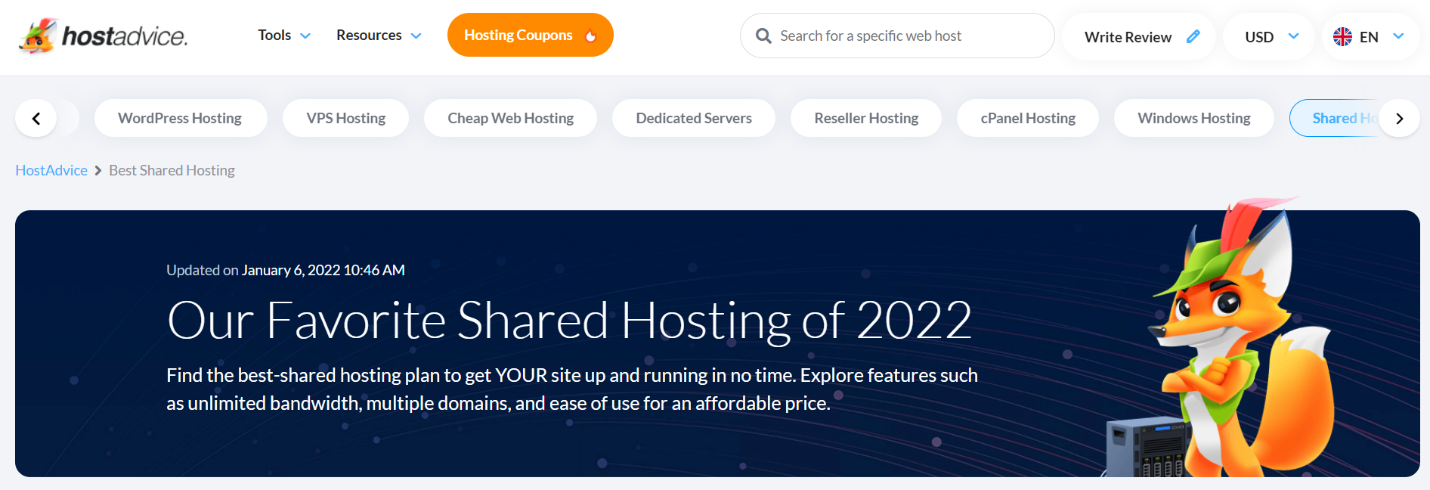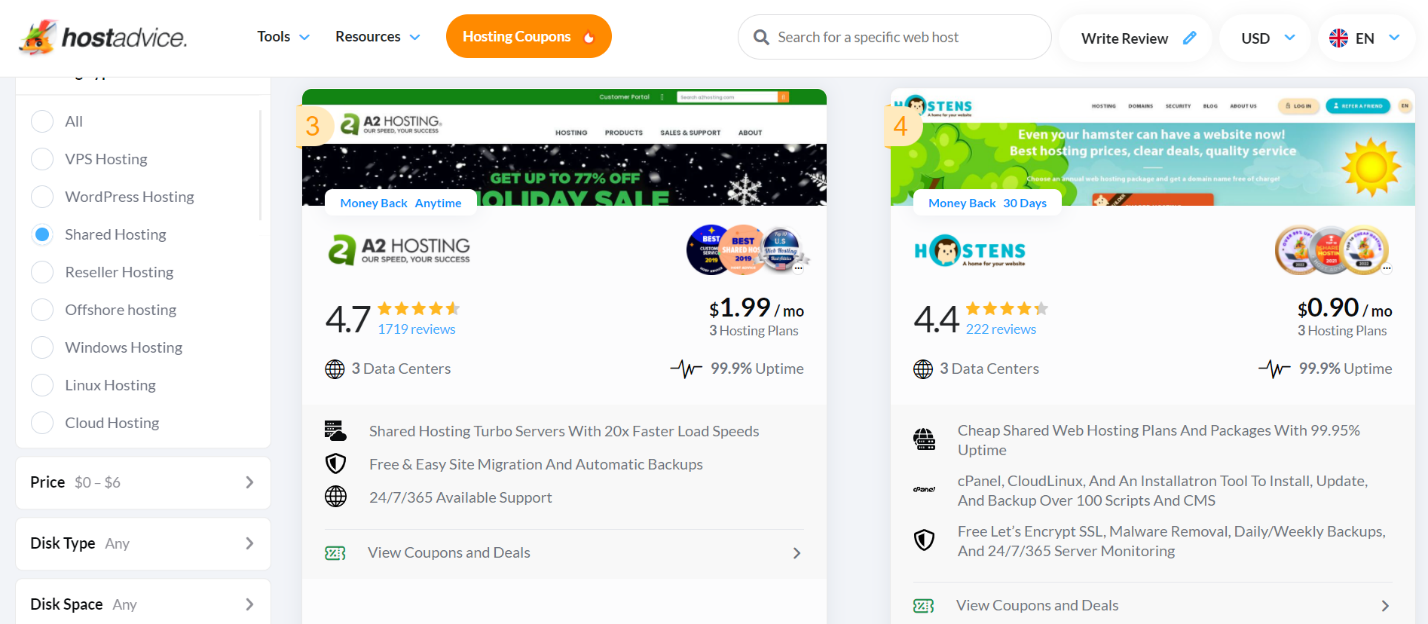In order to exist and function, every website, blog, store, and so on requires a hosting provider. Hosting firms are the foundation of a company’s or individual’s internet presence.
However, the world of hosting is not as straightforward as it appears. Many individuals believe that choosing the correct hosting provider is all there is to it. Before diving into the pool of various providers accessible and selecting the appropriate one, a critical decision regarding the hosting that is right for the user’s business must be made.
It’s no surprise that individuals have many questions when faced with this decision. What are the many forms of hosting? What services do they provide? What are the differences between them? What type of hosting does your company require? Is managed or unmanaged better?
There are so many questions to answer in such a short amount of time. But don’t worry; I’ll do my best to answer some of the above questions, as well as others, in this article.

For the time being, we have Shared Hosting and Dedicated Server as our competitors for today. I’ll compare and contrast them to discover which is superior and which is better suited to specific types of businesses.
But first, let’s discuss a bit about Shared Hosting and Dedicated Servers in general.
Some Shared Hosting Background
Shared hosting is a type of hosting where multiple websites are hosted on one physical server. All websites that share the server also share all the resources, including disk space, CPU, memory, database, bandwidth, etc.
Shared hosting is the cheapest hosting option available on today’s market, and is the easiest one to use, because users do not need to have any technical expertise or knowledge.
The thing that makes shared and dedicated server hosting fundamentally different is that with shared hosting, as mentioned, everything is shared and users do not own any physical resources. This distinction is also what makes the prices of the two hosting types so different as well, because sharing the resources makes shared hosting quite affordable and cheap.
Now, you might think: well if the resources are shared, does it mean that everyone can see what I’m doing on the server? I’m here to assure you that the answer is no. No other user can see what you have on the server, so in that regard, you have privacy.

Shared hosting is most suitable for low-traffic businesses, bloggers, small eCommerce stores, affiliate marketing sites, and essentially all those who have simple websites. Also, businesses and individuals who are on a strict budget and have prior experience with web development tend to go with shared hosting.
Shared Hosting Benefits
- It has a very user-friendly interface (usually cPanel)
- It is straightforward to use and understand for beginners
- It has a standard configuration
- Technical knowledge for the user is negligible to non-existent
- It is the most budget-friendly hosting solution
- It has a good performance for static and low-traffic websites
Shared Hosting Drawbacks
- It has higher security risks because all physical resources on the server are shared among the users
- Other sites on the server may influence the performance of your site
- Dedicated server hosting provides more security, bandwidth, and storage
- The root server is inaccessible to users
- When a site receives a lot of traffic, errors are more likely to occur
Some Dedicated Server Background
Dedicated server hosting is a hosting type in which one physical server is dedicated and hosts only one website. The owner of that website has complete control over the entire server, and no other user can access their server. Users also have the ability to pick the operating system they want to have.
Dedicated server hosting users are usually medium to large enterprises that have websites with high traffic volumes and many visitors. These users have complete control over all resources, hardware, software and can determine the resource limit from the start. Users can also tailor the hosting environment based on their preferences.

Dedicated Server Benefits
- Users have complete control over their servers because they are the only ones who use them
- Your site is physically isolated from other accounts because it is housed on its own physical server, whereas shared hosting requires you to share everything with other customers
- You don’t have to worry about other “bad websites†or hackers on other sites because you’re the only one on the server
- When it comes to setting your server and modifying resource distribution, a dedicated server gives you the most flexibility
- Your website can endure significant traffic surges while still quickly loading since visitors have more resources
- Everything will be set up and maintained by dedicated engineers if you choose a managed web hosting package with your dedicated server
Dedicated Server Drawbacks
- It can be pretty expensive
- Because the resources are separated physically rather than virtually, it’s more challenging to estimate how many you’ll need accurately
- On an unmanaged plan, you’ll require qualified staff to maintain and optimize the server
- Because it is already enormous, scaling a dedicated physical server is more challenging
Allocation of Resources
These two types of hosting are pretty different from each other in more than one aspect. So, let’s first see how they allocate their resources, starting with shared hosting.
I already mentioned that shared hosting users share all the resources with other users on the same physical server, and this comes into play when the allocation of resources is concerned. So, everything on the server is owned by all users, including memory, disk storage, bandwidth, CPU, and so on.
Seeing as everything is shared on the shared hosting server, it is no surprise that individual users have almost no control over what or how something can influence their websites. So, if for example, another site uses up too much space or memory, this affects your site and you will have less space or memory to use, even though you did not use it for your own needs.
Dedicated server hosting does allocation in a completely different manner. Users own the entire physical server, share it with no one else, and all resources they purchase are only theirs to use. So, unlike with shared hosting, no other site can affect your site or take away from your resources.
The one difference that dedicated server hosting users can have in regards to allocation is the amount of resources they purchase. Depending on individual needs, users can buy as little or as much resources as they need. Still, users own all resources they purchase, no matter the amount.
In this category, dedicated server hosting is the clear winner. You are independent of others and have complete control over your resources. Furthermore, no other user can impact your website, and no one can access your resources.
Safety First!
Individuals who work online and manage large amounts of data should consider security as one of the most important considerations. It’s critical to assess the level of security before deciding on a hosting provider, particularly in this day and age when businesses and individuals are subject to cyber attacks, hackers, and viruses.
Shared hosting is generally regarded as being safe and secure. However, the most important aspect of shared hosting security that all users should know is that if one website is attacked, all other websites that share the same server as the attacked site are vulnerable to attacks as well. So, there is a great possibility that the attack can spillover to other websites.
Additionally, security mostly depends on the hosting providers, but they are ultimately powerless if a site gets hacked or attacked and cannot contain the attack to that website only.
Sites hosted on dedicated servers can only be attacked if they are specifically targeted, or if the owner of a site makes a mistake or overlooks a potential threat. Also, if no such things happen, users can rest assured that they will not be attacked and even if another site is, they will not take any damage and run no risk of an attack.
Furthermore, dedicated server hosting allows customers to add extra security measures and features to their websites if they wish to make them even safer.
So, dedicated server hosting emerges victorious in the security race. Dedicated server hosting, provides a higher level of security compared to shared hosting. With dedicated hosting, users can also install their own security software and have complete control over any security breaches.
Performance
Customers like responsive websites that load quickly. This is where your website’s performance comes into play, ensuring that visitors have a great experience regardless of whether or not they make a purchase.
Performance is directly linked to bandwidth, uptime, rapid loading rates, and response time, which are all features that depend on the hosting provider. However, shared hosting is limited in terms of the listed features, as users share all of the server’s resources with other users. However, shared hosting is ideal for smaller websites with little traffic.
Dedicated servers provide faster speed, better performance, more bandwidth, uptime, and loading speed than shared hosting. Since no resources are shared, and every feature belongs to one user only on a dedicated server, performance is significantly better than shared hosting.
So, dedicated server hosting wins this round as it is more than capable of handling high traffic spikes and delivering unwavering performance, speed, and fast loading rates.
Customization Abilities
Every business owner and corporation wants to be one-of-a-kind. As a result, customization is critical. Consider the freedom and ability to customize before choosing a hosting option for your website.
Shared hosting is not the most customizable hosting type out there. With shared hosting, customization limits exist and cannot be changed or surpassed after they are set. So, users get only one chance to establish the limits, and there are no do-overs.
Many users consider this as a constraining factor that can hinder their creativity, while others see it as good enough for their sites.
Complete customization is possible with dedicated hosting. You may choose the operating system, set the environment to run specific apps, and optimize the amount of bandwidth and memory you require because you are not sharing the server with any other websites.
In terms of customization and creativity, dedicated server hosting is more flexible and allows users to do whatever they want with their websites.
What About Scalability?
Scalability is essential for websites that wish to grow or are developing quickly.
Shared hosting is not the optimal option for such sites because once you decide to grow your site’s traffic and popularity and you begin to attract more clients, shared hosting will no longer be able to maintain your site as it once did. However, for sites that have low traffic and do not anticipate any rapid growth, it is a perfect choice.
Dedicated server hosting is the best choice for websites that are experiencing or anticipate rapid growth, have a lot of visitors and want to advance their websites even more in the future. Also, with dedicated server hosting, all resources that a site could need are available for the very start, and the resource limits can be changed every month.
For this category, I have to declare dedicated server hosting as the winner, as it offers all the resources a user can need from the start. It is also able to accommodate high traffic spikes and rapid growth, which gives it an upper hand compared to shared hosting.
Better Value for Money
Price is an essential consideration in any purchase, but it is especially so for businesses and individuals on a tight budget. Nobody can make a decision without taking into account the financial consequences. That is why it is essential to look at the financial aspect of the two hosting types, starting with shared hosting.
Shared hosting is the cheapest hosting type that fits perfectly in the budget of small enterprises, individuals with personal sites, bloggers, etc. It is the optimal solution as it does a great job at supporting these kinds of sites, all while being affordable.
Dedicated server hosting is costly since it provides users with their own physical server that they do not share with anyone else. Also, users own all the resources on the server and use them as they see fit. And since the resources are not shared and belong to one user only, the price of getting this service is significantly higher compared to shared hosting.
When it comes to the more affordable one out of the two, shared hosting takes the victory. In terms of cost, no other sort of hosting can match it. However, it’s essential to understand that shared hosting has its limitations and that just because it’s the cheapest doesn’t mean it’s the ideal option for your company.

Server Administration and Control
Shared hosting is probably the easiest hosting to use and is very user-friendly. Users do not have to have technical knowledge or expertise to use it, and they do not have to do any upkeep or updating. The technical aspects like installation, upgrades, monitoring, etc. are all done by the provider, as well as all else that happens in the background. So, it would cause no trouble for the user to successfully use shared hosting, even if they are new to web development and haven’t used it before.
Users have root access and the ability to install their own scripts and programs on a dedicated server. They can even alter the settings of entire servers and operating systems at any moment. However, this does imply that users have a high level of responsibility and must, for example, tend to update or maintain themselves. Users must also have a higher level of technical expertise to work successfully on a dedicated server.
So, the winner in this category could go either way. If you’re a beginner with no technical knowledge and want something more convenient and user-friendly, shared hosting is the way to go. However, dedicated server hosting is the way to go if you’re searching for something more advanced and want more control over both the back and front ends.
When to Choose:
| Shared Hosting | Dedicated Server |
|---|---|
| You’re just starting out with web hosting and don’t want to spend too much money right now | Your website receives a lot of visitors regularly |
| You run a small business | If you need high-end hardware and software |
| You recently started a blog | Your website’s performance is slow |
| Your website or blog does not have a lot of traffic | You want to run numerous sites at the same time |
| You’re on a strict budget | If you require a large amount of bandwidth that is both reliable and consistent |
Overview of Categories
| Category | Shared Hosting | Dedicated Server |
|---|---|---|
| Resource Allocation | Individual users have little control over what influences their websites or how it affects them. | Resource limits can be changed on a monthly basis to match your needs. |
| Security | Overall, secure. However, even if one website is attacked or hacked, all websites become susceptible. | Users have more control over their own security, and they can install additional security features. |
| Performance | It has a high level of uptime, bandwidth, and support for smaller websites. | Lightning-fast loading times based on the resources available to your website. |
| Configuration and Customization | It restricts the number of resources available to users and prevents excessive customization. | Technical setup and upkeep aren’t a problem with managed plans, and you can customize your site with additional tools. |
| Scalability | No excessive scalability. | All resources are available to users from the start, and monthly limitations can be changed. |
| Pricing | It is currently the cheapest type of hosting. | The most powerful and expensive hosting option available. |
So, Who Wins?
So, based on my comparison of dedicated and shared hosting, I have to proclaim dedicated server hosting to be the overall winner since it was the clear winner in the majority of the categories I used to make my comparison. Dedicated server hosting, without a doubt, provides more advanced functionality, more options for users, and unlimited expansion prospects.
However, shared hosting isn’t all awful; it’s an excellent choice for small enterprises and personal websites with no ambitions for expansion and a limited budget.
So, while I declare dedicated server hosting to be the winner of today’s duel, it is ultimately up to you to decide which of these two types of hosting is perfect for you and which will best meet your needs.
Want to avoid problems of shared hosting? Click here and know about the best dedicated servers hosting.









